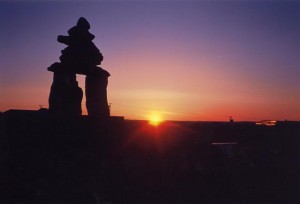Here is a link to Innovation Canada, specifically to a video titled “Hip Hop Storytellers” which showcases a project launched by Charity Marsh at the University of Regina where young aboriginals use new media (OK, moderately new technology like turntables are involved as well) to tell their stories. It has similarities to the two videos presented in Module 3, and it is closely related to my research topic, which is urban aboriginals and identity.
This is another related page on the website: “An Aboriginal Spin on Hip Hop” as well as a few other topics that show examples of excellence in research in Canada, which is part of the mandate of this site.
